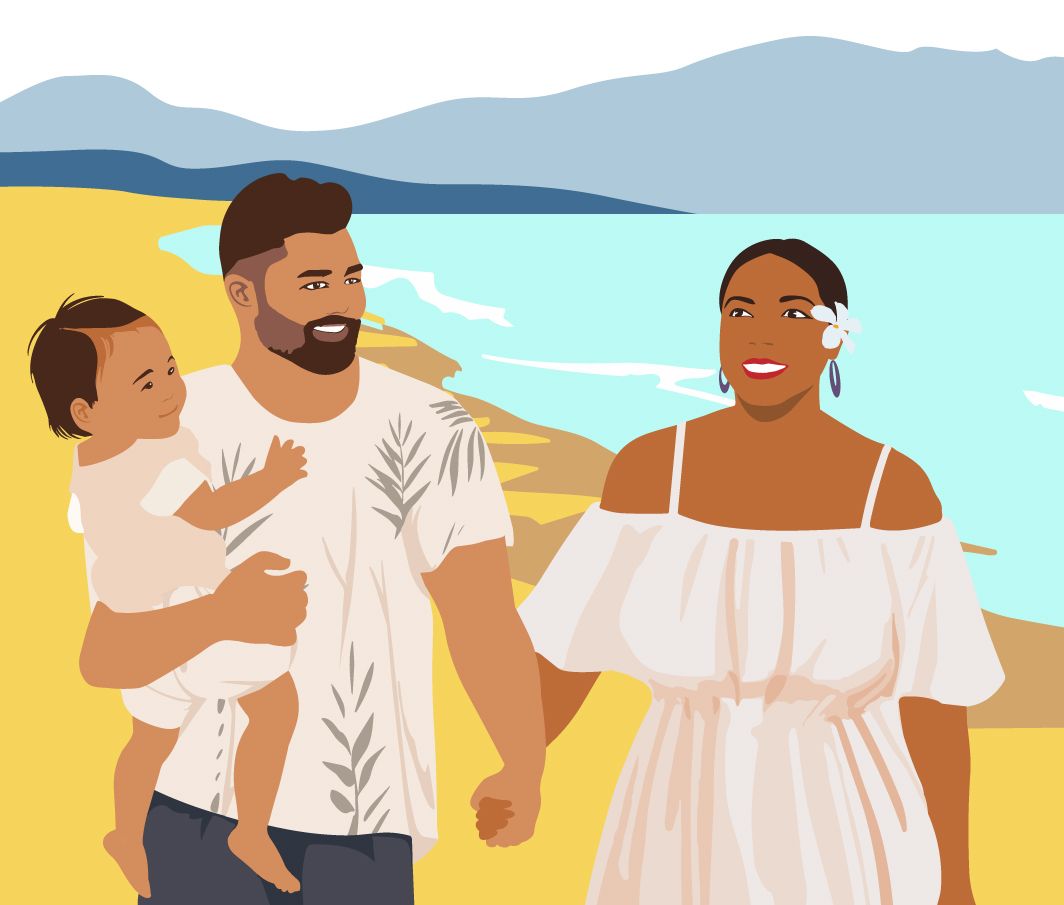Pregnancy
Pregnancy is a time of big change, filled with a range of emotions. Hormonal shifts, thoughts about the future and changes in relationships – it's all a normal part of this journey.
Pregnancy can intensify feelings of anxiety and depression for some. Recognising these signs and seeking support is key. This section offers insights into managing stress and understanding the emotional rollercoaster of new parenthood.
Having a baby and becoming a parent is a life-changing event for you and all the people around you. While some feelings of sadness can be expected, there are also times when sadness, anger or stress are signs you may need more support.
It's important to communicate your feelings – both the highs and the lows. It’s common to think about changes to your relationships, what being a parent will be like, juggling other children or commitments, money or going back to work. This is all normal, although it can feel overwhelming.
If you're feeling overwhelmed, check out these tips for maintaining strong relationships during pregnancy.
Understanding 'baby blues'
It's totally normal for new parents to feel a mix of emotions after childbirth. Knowing the difference between the temporary baby blues that are due to hormonal changes and the more prolonged feelings of depression and anxiety can be really helpful.
Baby blues
Signs usually happen within the first few days after labour. These resolve after a few days and usually last no more than a couple of weeks.
What baby blues might look like:
- Emotional ups and downs.
- Unexplained crying.
- Feelings of worry or sadness.
- Restlessness.
- Feeling overwhelmed.
- Difficulty concentrating.
- Changes in appetite.
- Trouble sleeping.
Depression and anxiety
These signs might start in the first weeks after birth, during pregnancy or within the first year. They can last longer than a year.
What depression and anxiety might look like:
- Feeling low and losing interest in things you once enjoyed.
- Challenges in connecting with your child.
- Low energy.
- Intense irritability.
- Feelings of shame or inadequacy.
- Feeling very anxious or on edge.
- Thoughts of harming yourself or harm to your baby.
- Thoughts of not wanting to be here.
Need immediate help? Call 111 or go to your closest emergency department.
Our pages about depression and anxiety will help you to recognise the signs and provide some ideas to help you feel better. Perinatal Anxiety & Depression Aotearoa provides information and support for perinatal anxiety and depression in the community.
If you're concerned, PlunketLine (0800 933 922) is just a call away 24/7.
Traumatic birth experience
Experiencing a birth that's different from what you expected can be really tough. It's okay to feel a whirlwind of emotions like sadness, anger, guilt or grief. These feelings are a natural response to such an intense experience.
Reaching out for support is a brave and important step. Whether it's your midwife, doctor or a support group, they're there to help you navigate through this. This journey can impact your mental wellbeing, your bond with your baby, relationships with your partner and whānau and your confidence in parenting and can sometimes lead to other mental health challenges.
Birth Trauma Aotearoa is amazing in this area. Their website is a treasure trove of support resources.
Managing lack of sleep
Caring for a newborn can be exhausting. Sleepless nights are really tough, and I can be hard to switch off even when the baby sleeps. Lack of sleep can affect your concentration, mood and overall wellbeing. Well-meaning advice from others can be frustrating.
Here are a few strategies to help you cope:
- Power naps: Sometimes this is easier said than done, but even short rests can help you to recharge.
- Relaxing audio: Listen to a meditation podcast, video or music – anything relaxing that allows you to stop and slow down for short periods.
- Ask for help: It can be hard to tell people how they can help – try writing down some tasks for them instead.
- Get outside: Even a small walk around the block to get some fresh air can make all the difference.
- Connect with people online at night: Sometimes knowing someone else is awake too can make things easier to bear.
- Create a routine that works for you: Allow yourself some downtime when you can.
- Find a mantra that works for you: Repeating something like “this will pass” or “my child will sleep again” can be helpful.
- Carve out some time for your basic needs: When we miss sleep, it can feel extra challenging to take care of ourselves by showering, eating and cleaning our teeth. Prioritise your basic needs, especially when sleep is rare.
- Call PlunketLine 0800 933 922 for free to speak to a nurse 24 hours a day, 7 days a week.
Expectations of parenthood
Parenting is a journey filled with joy and challenges. It's normal for your expectations to clash with reality, which can be stressful. If you're finding that parenthood isn’t what you expected it to be, here are some tips:
- Talk with your support network about how you’ve been feeling.
- Connect with other parents for insights and shared experiences.
- Set realistic goals and clear boundaries for yourself.
- Take steps to support your wellbeing like maintaining social connections or setting aside time for yourself each day.
Balancing social media and parenthood
Social media is a great way to connect with other parents, but it's important to balance it with real-life interactions. Remember that what you see online isn't always the full story.
What to do if you feel the need for a digital detox:
- Engage in offline activities.
- Limit your time on social platforms.
- Follow pages that uplift you.
- Let your friends and family know about your social media break.
- Trust your instincts and always turn to trusted sources for advice.








